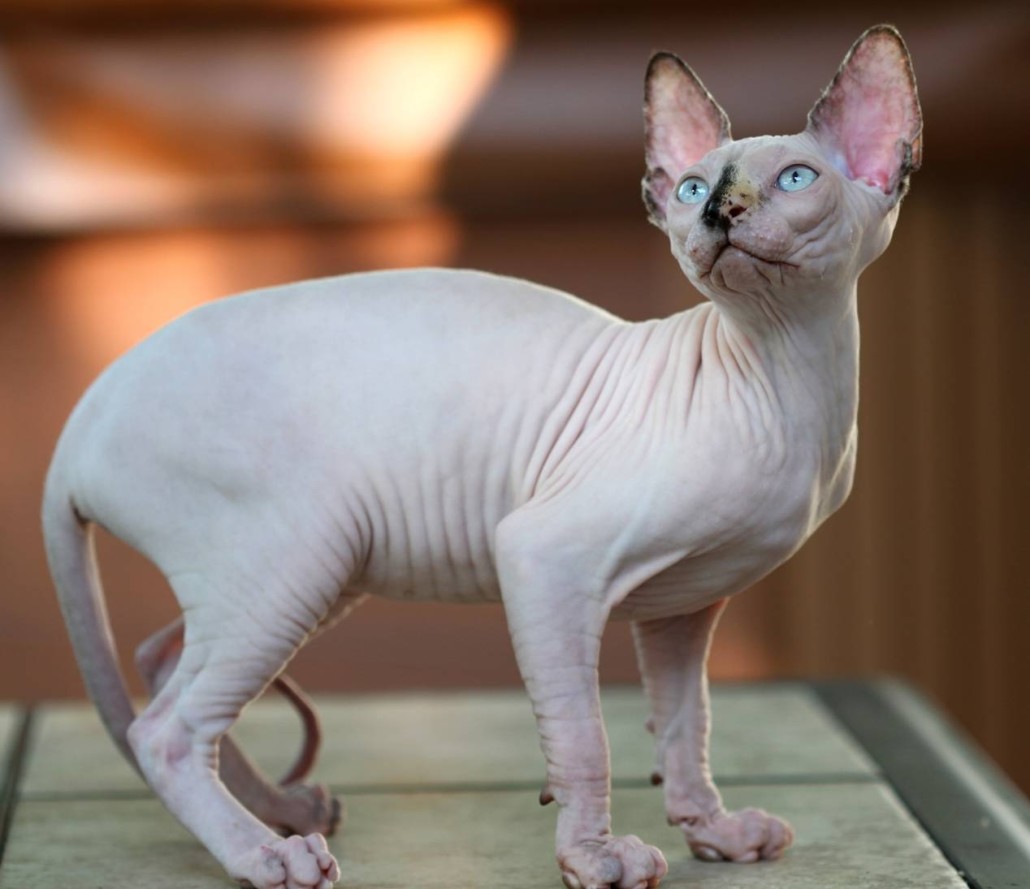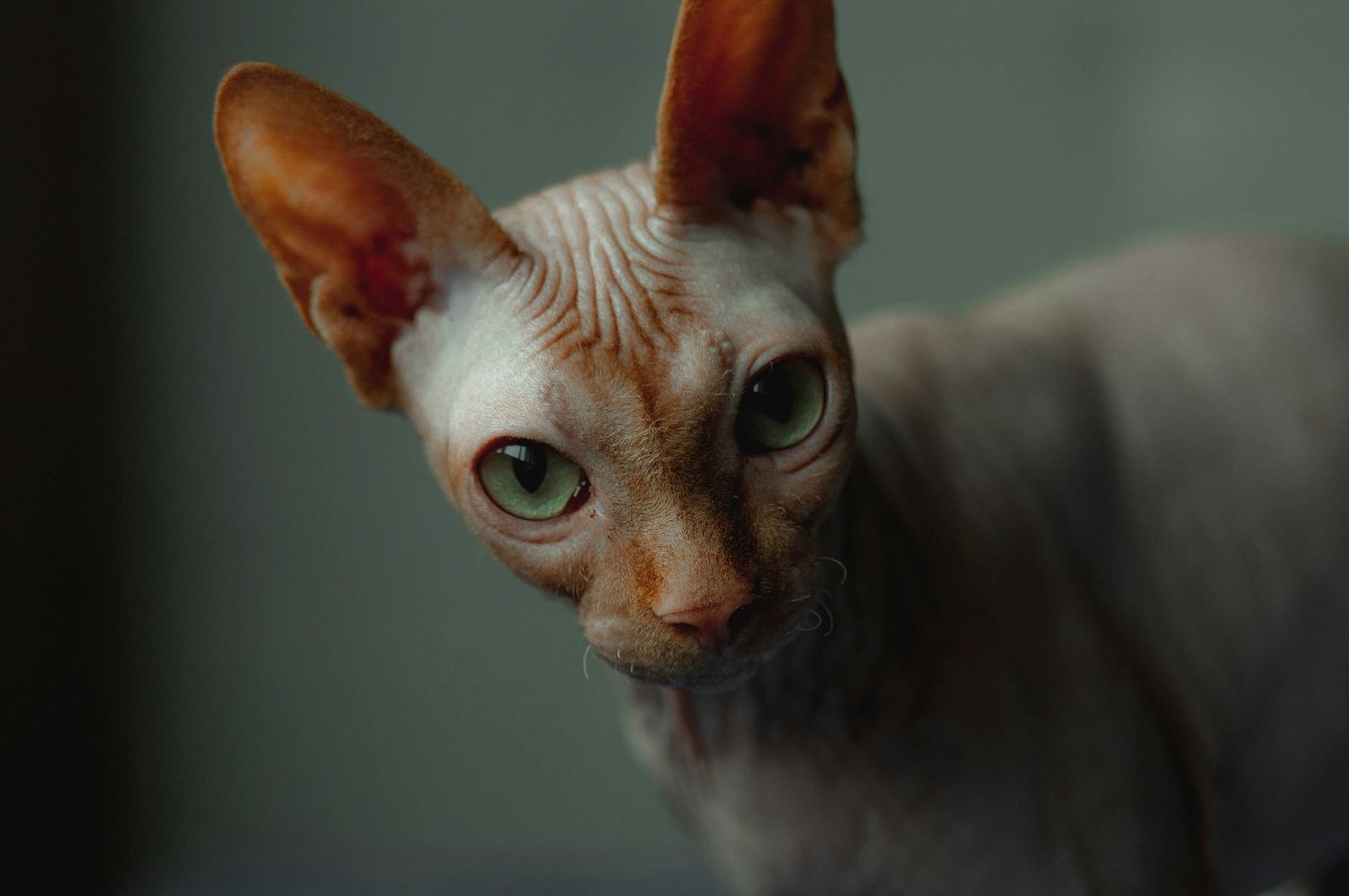7 Routine Veterinary Care Tips for Your Hairless Companion
Routine veterinary care is vital for maintaining the health and well-being of Sphynx cats. With their unique anatomy and specific care needs, Sphynx cats benefit from a regular checkup schedule that focuses on skin health, heart health, dental care, and vaccinations. In this guide, we’ll outline the essential aspects of routine veterinary care for Sphynx cats to keep your feline friend healthy and thriving.
1. Regular Health Checkups

Annual or biannual veterinary checkups are essential for Sphynx cats. These visits allow the vet to monitor your cat’s overall health and catch any potential issues early.
What to Expect During a Checkup
During a routine exam, your vet will:
- Weigh your cat to monitor any changes in weight.
- Examine the skin for signs of irritation, dryness, or infection.
- Check the eyes, ears, and mouth for abnormalities or signs of infection.
- Listen to the heart to detect any irregularities, especially given the Sphynx’s predisposition to certain heart conditions.
Your vet may also recommend specific tests or preventative care depending on your Sphynx cat’s age, weight, and health history.
Learn more about Common Health Issues in Sphynx Cats.
2. Skin Care and Monitoring
One of the most distinctive aspects of Sphynx cats is their hairless skin, which requires regular care and monitoring. Due to the lack of fur, Sphynx cats have oilier skin that needs to be kept clean to prevent irritation and infection.
Skin Issues to Watch For
- Oil Buildup: Regular baths are necessary to manage oil buildup, as Sphynx cats lack the fur to absorb natural skin oils.
- Dryness and Flakiness: Some Sphynx cats may experience dry skin, especially in colder months. Discuss safe moisturizing options with your vet if you notice signs of dryness.
- Rashes or Redness: Redness, rashes, or other skin irregularities should be checked by a vet to rule out infections or allergies.
Routine vet visits help monitor any skin issues and ensure your Sphynx’s skin remains healthy.
Read more about Sphynx Cat Skin Health and Grooming.
3. Heart Health Monitoring
Sphynx cats are genetically predisposed to Hypertrophic Cardiomyopathy (HCM), a condition that affects the heart muscle. Routine heart screenings are important to catch this condition early, as early detection can help manage symptoms and improve your cat’s quality of life.
What to Expect in Heart Screenings
- Auscultation: Your vet will listen to your cat’s heart for irregular sounds, such as a heart murmur.
- Echocardiogram: An echocardiogram, or ultrasound of the heart, can provide a detailed look at the heart’s structure and function. This test is often recommended for Sphynx cats as they age or if any abnormalities are detected.
Discuss the appropriate screening schedule with your vet, especially if your Sphynx has a family history of heart issues.
For more information, check out our Guide to Heart Health for Sphynx Cats.
4. Dental Care
Dental health is often overlooked but is a crucial aspect of Sphynx cat care. Regular dental checkups and cleanings help prevent gingivitis, tooth decay, and periodontal disease.
At-Home Dental Care
In addition to annual dental checkups, incorporate at-home dental care to keep your Sphynx’s teeth and gums healthy.
- Brushing: Use a vet-approved cat toothbrush and toothpaste to brush your cat’s teeth several times a week.
- Dental Treats: Dental treats or chews designed to reduce plaque buildup can be beneficial for maintaining oral health.
Veterinary Dental Cleanings
Your vet may recommend professional cleanings to remove tartar buildup and address any underlying dental issues. Routine cleanings are especially important for Sphynx cats, as they are prone to dental disease.
5. Vaccinations and Parasite Prevention
Like all cats, Sphynx cats require vaccinations to protect them from common feline diseases. Your vet will help you establish a vaccination schedule based on your cat’s age, lifestyle, and health needs.
Core Vaccinations
- FVRCP Vaccine: This combination vaccine protects against Feline Viral Rhinotracheitis, Calicivirus, and Panleukopenia.
- Rabies Vaccine: Required by law in many areas, the rabies vaccine protects against the deadly rabies virus.
Parasite Prevention
Due to their lack of fur, Sphynx cats may be more vulnerable to skin parasites such as fleas. Monthly parasite prevention treatments recommended by your vet can keep fleas, ticks, and intestinal parasites at bay.
Find out more about Sphynx Cat Vaccination and Parasite Prevention.
6. Nutrition and Weight Monitoring
Since Sphynx cats have a high metabolism, they require a nutrient-dense diet to support their energy needs. Weight management is an important part of routine care, as both underweight and overweight Sphynx cats can face health challenges.
Nutrition Tips
- High-Protein Diet: Feed your Sphynx a high-protein diet that meets their nutritional needs.
- Scheduled Feedings: Regular feeding schedules help maintain a stable weight. Sphynx cats burn energy quickly, so multiple meals a day can help keep them satisfied.
Monitoring Weight
During each vet visit, ask your vet to check your cat’s weight and body condition. If you notice any significant changes in weight or eating habits, consult your vet to rule out any underlying health issues.
Explore our guide on Sphynx Cat Feeding Schedule and Nutrition Tips.
7. Behavioral and Mental Health Checkups
Sphynx cats are known for their social and affectionate nature. Ensuring they have a stimulating and enriching environment is crucial for their mental health. Routine vet visits provide an opportunity to discuss any behavioral changes, such as aggression, lethargy, or changes in eating habits, which could indicate underlying health or emotional issues.
Mental Enrichment
Keeping your Sphynx mentally stimulated can prevent boredom-related issues. Discuss enrichment ideas with your vet, such as toys, climbing structures, and interactive play.
- Signs to Watch For: Behavioral changes like hiding, excessive vocalization, or litter box issues can indicate stress or illness. Bring these up during your cat’s routine exams.
For more ideas, see our post on Sphynx Cat Enrichment Ideas.
Conclusion
Routine veterinary care for Sphynx cats goes beyond the standard checkup. From skin care to heart health, regular dental cleanings, vaccinations, and behavioral monitoring, a comprehensive approach ensures your Sphynx cat remains healthy and happy. By establishing a consistent vet care routine and monitoring their health at home, you can help your Sphynx cat live a long, thriving life.

